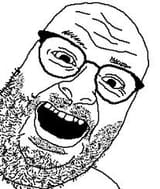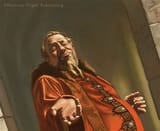>>513466745 (OP)
Should've let me attend a decent college *without shit teachers and anti White curriculum.* Or at least listened to me when I rushed all to tell you about how wrong it was saying rudely that only one race could be racist or keep slaves etc.
But no
You were blinded and just fucked up anyone who spoke out against your anti White/ "anti Colonial" / endless id pol d and c ...
But...wtf?... that was 2 (two)
decades ago
and
it's
tooooo
fucking late
Here are five common themes found throughout the A Song of Ice and Fire (ASOIAF) books:
Moral Ambiguity and the Duality of Human Nature
Characters often display both good and evil traits, and the line between hero and villain is intentionally blurred. The story reflects a world where "the human heart in conflict with itself" is central, rather than a typical fantasy battle of good versus evil.
Power and Its Corruption
Many characters seek power for themselves or their families, and the pursuit often leads to corruption, brutality, and tragedy. Even those with good intentions can be changed or destroyed by power.
Family and Loyalty
Family ties play a vital role, shaping ambitions and actions throughout the story. Whether for love, honor, or legacy, family can be a source of strength and pain.
Honor versus Duty
Characters are repeatedly forced to choose between what is honorable and what is required by duty, especially when the two come into conflict. These choices shape their fates and drive much of the interpersonal drama in the series.
Betrayal and Trust
The series is filled with treachery and betrayal, both on grand political levels and in personal relationships. Trust is fraught, and those who rely too much on honor or sentiment are often doomed.
Other notable themes include war and its consequences, social and political realism, sexuality, existential threats, and the overarching question of what makes a "good" ruler.
 8/19/2025, 6:14:53 PM
No.513466745
>>513466945
>>513467112
>>513467252
>>513467390
8/19/2025, 6:14:53 PM
No.513466745
>>513466945
>>513467112
>>513467252
>>513467390


